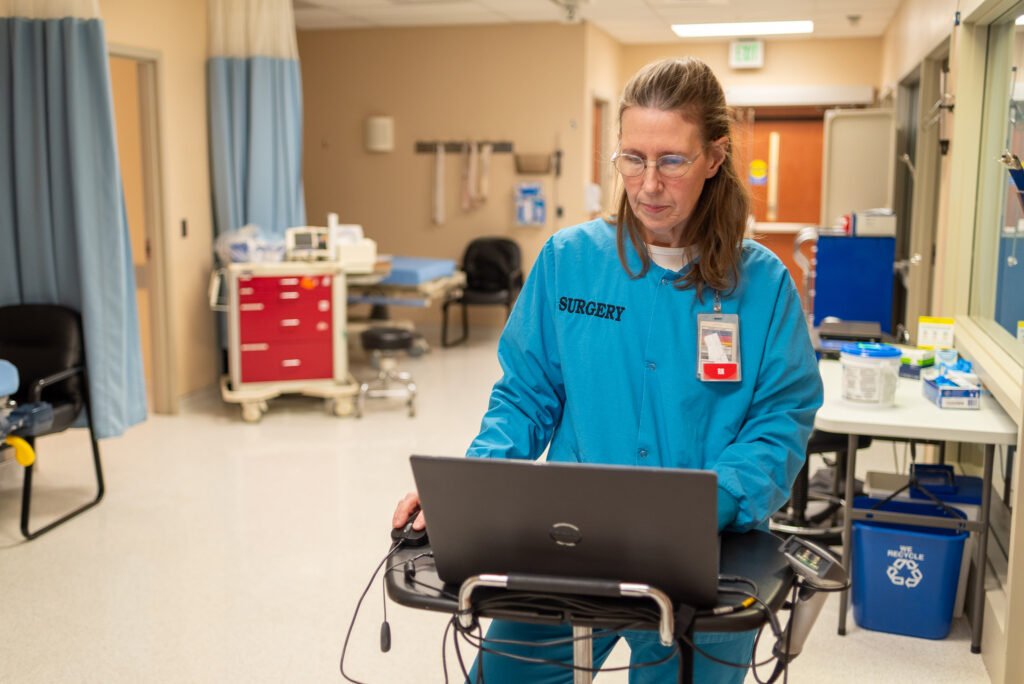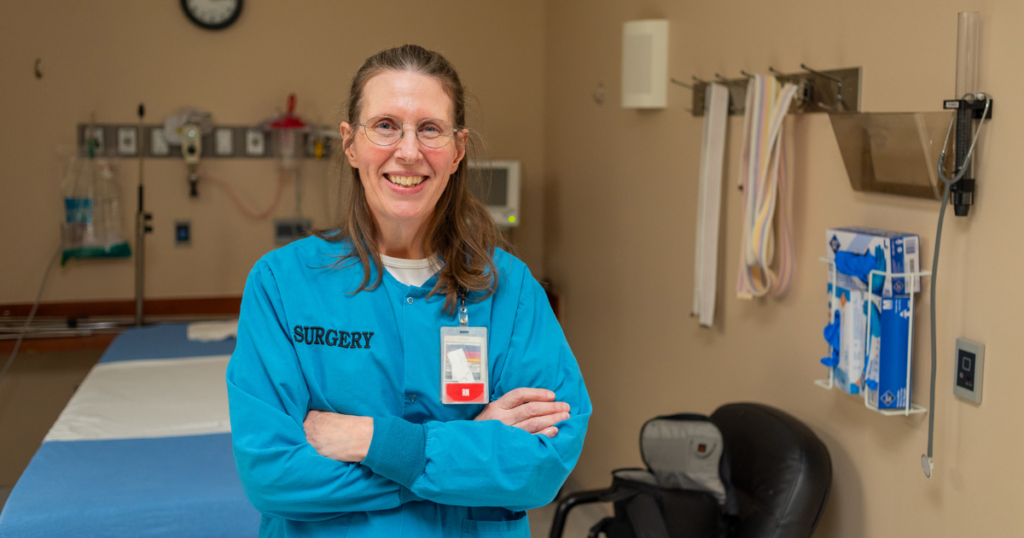Shirley shared her story as part of MECEP’s State of Working Maine 2023 report. Click here to read the full report.
Shirley is a surgical nurse with 28 years of experience, currently working in two rural hospitals in Washington County.
The financial crisis in 2008 hit my hospital very hard. Where we had been a very robust hospital, things just gradually got quieter and quieter and quieter. Over the next decade we started having cutbacks. “We don’t need this. We’re getting rid of that person. We’re not doing this service anymore.” And every few years the CEO leaves and the CFO leaves, and then the nursing director leaves, and you get a whole change of staff at the upper levels. And every time that happened, things just seemed to get worse and more depressed. It became “how do we save money?” instead of “how do we make money and provide more services?”
And then COVID hit, and everybody stopped going to the hospital. I can’t overemphasize how odd it was, when you’re used to seeing a waiting room full of people getting lab work and X-rays, and then it’s just crickets. You’d walk out and be like, “Where are all the people?” Well, they they’d been going away anyway because the hospital was not offering what they had traditionally. And then COVID just took all the rest of them.
After the height of COVID we’ve been left with a much-reduced staff as well as fewer patients. We never know how many patients are going to come in, and the uncertainty translates directly to the staff, because they don’t know if they’re going to be told to stay home, or if they’re going to be floated to another department they don’t have as much experience in.
Providing enough staff is important, so that people don’t walk into every shift and say, “Where am I going to be? Who am I going to be working with? What am I going to be doing?” That is a huge challenge right now. But if you remunerate people properly, that helps. You can go to Walmart five minutes away and earn more starting pay than you can as support staff at the hospital. And a shift at Walmart is a lot less stressful and a lot less dangerous.

We have no pension. We have a retirement plan, but the hospital hasn’t contributed to it for about 20 years. That’s important to a lot of people. That’s a retention issue. Somewhere else, they’ll give me a sign-on bonus, they’ll match 3 percent of my salary. That’s a big deal. That’s a direct reflection on valuing a person.
If you have a nurse who is just out of school, or they don’t have a spouse with a local job, or if their family doesn’t live locally, how are you going to keep that person? You have to pay competitively. It’s a hard thing, but you have to spend a certain amount of money to keep people who you’ve just invested six months or a year of training in. You’ve got to show them that there’s a competitive salary and that there is a road to salary increases.
If you can provide good jobs, you’ll get some of these people that you would call a super employee — people who are fiscally loyal to that job and who stick around. You cannot overestimate the value of institutional knowledge. A good workplace is a place where there is strong, positive, open leadership and people who actually know how to lead. You need to make the conditions of the job decent enough that people can have self-respect and are not constantly looking around and going, “You know, we’re the lowest paid site in the state of Maine.” If they don’t value you, you don’t get to value yourself. You feel bad about your workplace, and you don’t necessarily feel a lot of loyalty to it.
I’ve been around long enough to know that leadership that actually leads is crucial. You can’t have a placeholder. You have to put the right people with the right mindset and skills in the leadership positions in a small rural hospital to have a chance. Without good leadership, you’re not getting led, and you’re not going anywhere.




